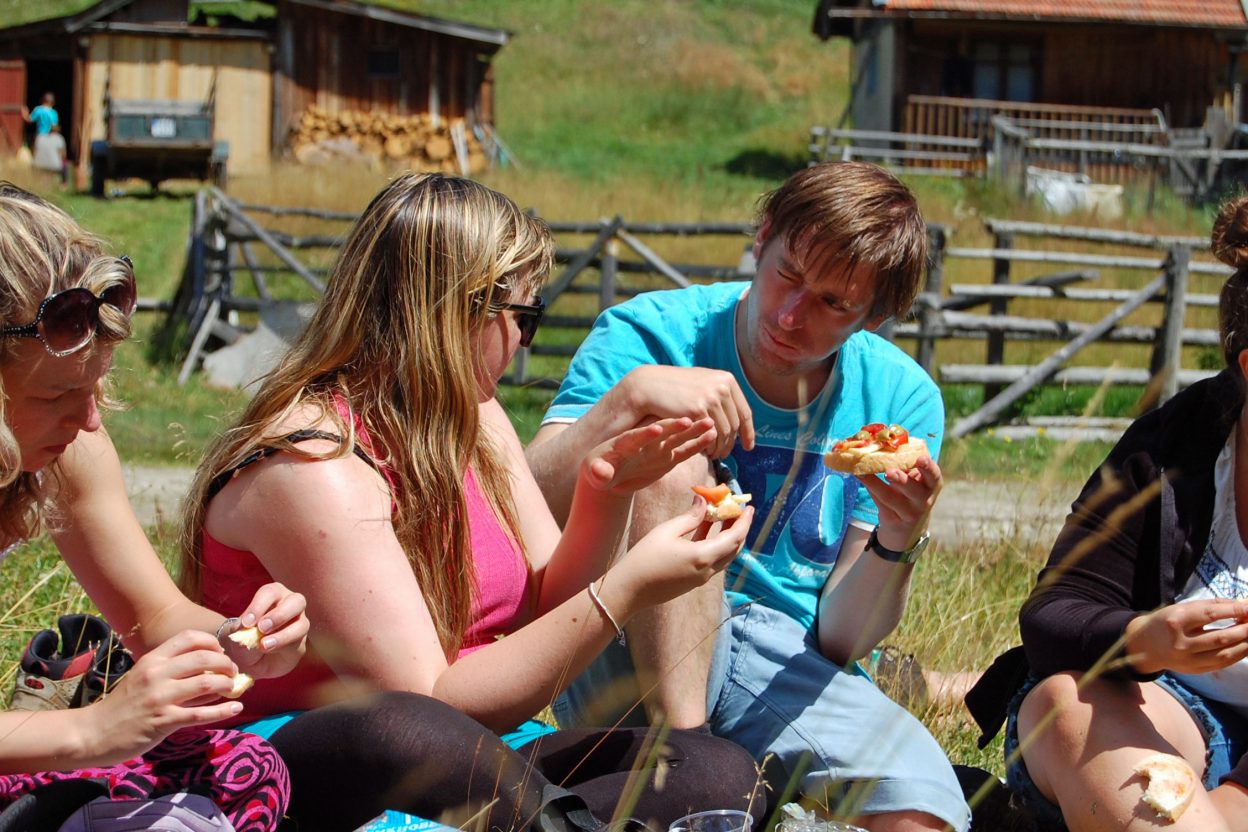Every year, one third of the food that we produce globally for human consumption gets wasted. That’s 1.3 billion tonnes in total, of produce that’s used precious energy and water resources to be grown, picked, processed and transported, to then only end up in the trash bin.
One thing that people around the world are doing to reduce their own ecological footprint and fight back against food waste is ‘dumpster diving’; rescuing wasted but still useable food that’s been thrown into the bins by supermarkets, restaurants or anyone else!
Following discussions we had at the YFoEE summer camp on the environmental and climate impact of food, the problems with food waste, and the need to switch to a ‘degrowth’ frame of mind, Iwan Osentschuk from Germany has prepared this guide for anyone adventurous enough to go on a dumpster diving forage themselves. So here you go!
***
These are the things you will need for successful dumpster trips:
• A pair of rubber gloves (in case you’re accidentally touching smelly things)
• one headlamp (for light and keeping your hands free)
• darkish clothes (for extra camouflage)
• A bike with an trailer (for quicker travel and carry more spoils)
After you have all the objects, you should make a map with all the markets in your near vicinity. Also remember the opening and the closing times of the malls you want to dumpster dive, because the right timing will make it easier to loot the containers without interruptions. This can for example happen, if some of the staff from the market spot you and shoo you away or even worse call the guard personnel against you.
When you’ve found the right spot, you should first begin by examining the dumpster itself.
If it’s closed, then you shouldn’t try to open it because even with the right tools, it can be considered theft and that is certainly NOT the cause bystanders want to associate about dumpster-diving and about you. And you might not be prepared to break the law for your food-saving activities.
We assume it is however open. So now search the container for edible food. Be careful about the expiry dates, because it usually lies about the edibility of the food. You can for example eat cheese without problems, while you could get some serious diarrhea by drinking spoiled milk if you’re unlucky. So the rule of thumb is: The more processed the food is, the more likely it will be edible beyond the freshness date.
If you think that you have pillaged enough food you should quickly sneak back to your bike or whatever kind of vehicle you’re using and travel back. If not, then rinse and repeat the steps, until you’ve found enough tasty things. However you still should try to leave some of the edible content left for other dumpster divers.
*Warning!*
As Iwan points out, in some countries and cases dumpster-diving can be against the law. So check out all the laws where you are before embarking out on somthing that might have associated risks that you are not prepared for!

